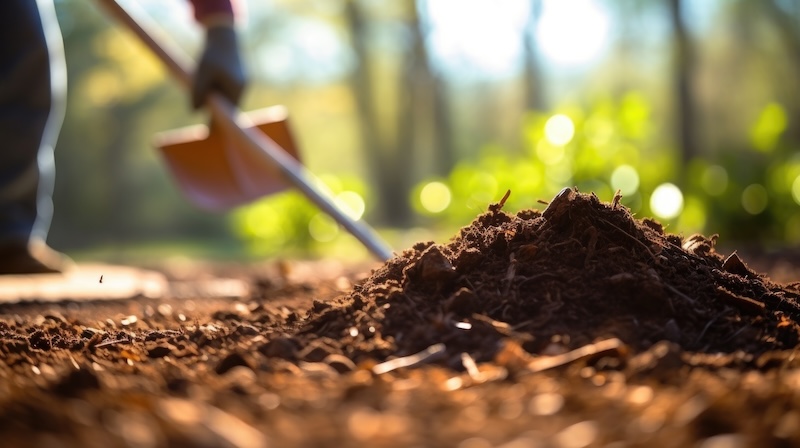The Silent Tree Killer: Soil Compaction and How to Save Your Trees
Your trees may look healthy on the surface, but beneath the soil, a silent killer could be lurking: soil compaction. While often overlooked, compacted soil can wreak havoc on your trees’ health, leading to a host of problems and even premature death. At Advanced Tree & Shrub Care, Inc., we understand the devastating impact of soil compaction and offer expert solutions to revitalize your trees and promote healthy growth.

What is Soil Compaction and Why Does it Matter?
Soil compaction occurs when soil particles are pressed together, reducing the space available for air and water. This suffocating environment makes it difficult for roots to grow, absorb nutrients, and access vital oxygen. Over time, compacted soil can starve your trees, leaving them vulnerable to disease, pests, and environmental stressors.
Causes of Soil Compaction: From Foot Traffic to Construction
Several factors can contribute to soil compaction, including:
- Foot traffic: Even the simple act of walking over soil can compress it over time, especially in high-traffic areas.
- Vehicle traffic: Cars, trucks, and heavy equipment can compact soil even further, making it extremely dense and difficult for roots to penetrate.
- Construction activities: Excavation, grading, and heavy machinery used during construction can severely compact the soil, leaving trees struggling to survive in the aftermath.
- Natural events: Flooding and heavy rain can also compact soil, especially in areas with poor drainage.
Signs Your Trees Are Suffering from Soil Compaction
How do you know if your trees are falling victim to soil compaction? Look for these telltale signs:
- Stunted growth: Trees may grow slower than usual or fail to reach their full potential height.
- Yellowing or browning leaves: Nutrient deficiencies caused by compacted soil can lead to discoloration and premature leaf drop.
- Thinning canopy: Branches may die back or become sparse due to lack of nutrients and oxygen.
- Surface roots: Roots may grow near the surface of the soil as they struggle to penetrate the compacted layers below.
- Tip Dieback: The tree’s canopy will begin to thin or become sparse due to lack of nutrients and oxygen.
- Overall decline in health: Trees may become more susceptible to diseases, pests, and environmental stress.
Services Advanced Tree & Shrub Care, Inc. Provides:
Thankfully, soil compaction isn’t always a death sentence for your trees. At Advanced Tree & Shrub Care, Inc., we offer a range of solutions to address soil compaction and restore your trees’ health, including:
- Aeration: This process involves creating small holes in the soil to improve air and water penetration, allowing roots to breathe and grow.
- Mulching: Adding a layer of compost or organic mulch to the soil surface can gradually improve soil quality and reduce compaction over time.
- Soil Treatment Options: Call us!
Prevention is Key: Protecting Your Trees from Compaction
Of course, the best way to deal with soil compaction is to prevent it in the first place. Here are some tips:
- Minimize foot and vehicle traffic: Create designated walkways and avoid parking or driving over tree roots.
- Use mulch: A layer of mulch around trees can help protect the soil from compaction and retain moisture.
- Properly manage construction activities: If construction is necessary, take steps to protect tree roots from damage and compaction.
Trust the Experts at Advanced Tree & Shrub Care, Inc.
Don’t let soil compaction rob your trees of their vitality. Our team of certified arborists at Advanced Tree & Shrub Care, Inc. has the knowledge and expertise to assess your trees’ health, diagnose soil compaction issues, and implement effective solutions. Contact us today to schedule a consultation and give your trees the care they deserve.
